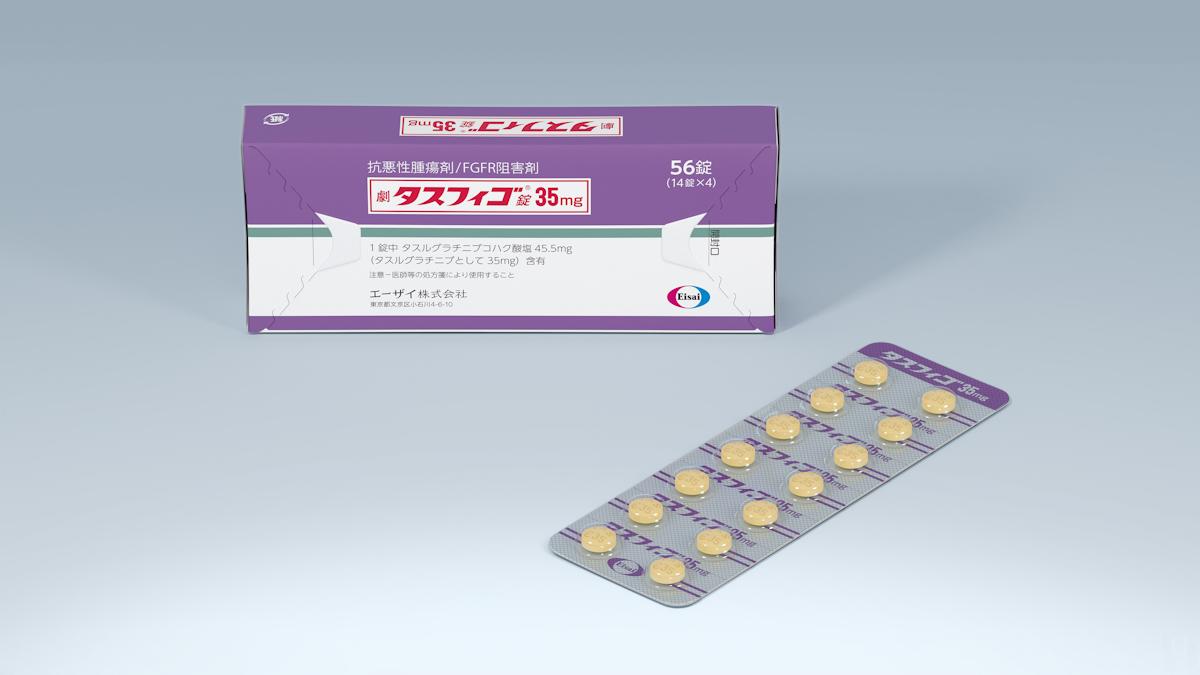Eisai debuts biliary tract cancer drug in Japan

Eisai has launched its new therapy for biliary tract cancer (BTC) Tasfygo in Japan, the first world market for the drug.
Tasfygo (tasurgratinib succinate; formerly E7090), a small-molecule fibroblast growth factor (FGF) receptor inhibitor, has been launched for the treatment of BTC patients whose tumours express FGFR2 gene fusion mutations.
The drug was approved by Japan's Ministry of Health, Labour and Welfare (MHLW) in September and was published on the National Health Insurance Drug Price List yesterday, clearing the way for the launch. A diagnostic for FGFR2 mutations from Nihon Stery has also been approved for use alongside the drug treatment.
Tasfygo was given a priority review in Japan, reflecting the relatively high incidence of BTC in Japan compared to other countries, as well as the poor prognosis for patients with this type of cancer – which is also known as cholangiocarcinoma.
It was approved by the MHLW on the strength of a single-arm phase 2 trial (Study 201) that enrolled patients in Japan and China with FGFR2 gene fusion-positive unresectable BTC that had previously been treated with gemcitabine-based combination chemotherapy – the standard first-line treatment.
According to Eisai, there are around 22,000 people with BTC in Japan, and the disease has a five-year survival rate of just 25% – making it second only to pancreatic cancer among tumours with the worst prognosis.
FGFR2 gene fusions or rearrangements are observed in between 5% and 14% of intrahepatic cholangiocarcinoma, which accounts for 15-30% of BTC cases, and are known to be associated with more aggressive forms of the disease.
Tasfygo joins other FGFR-targeting therapies on the market, including Incyte's Pemazyre (pemigatinib), Taiho Oncology's Lytgobi (futibatinib), and Johnson & Johnson's Balversa (erdafitinib).
Pemazyre and Lytgobi are already launched in Japan for FGFR2-mutated BTC, but at the moment Balversa is only approved for bladder cancer.
Elsewhere, Pemazyre was approved in the US for the BTC indication in 2020, becoming the first targeted therapy for the disease, and was joined by Lytgobi last year.
Eisai does not appear to have any aspirations to develop tasurgratinib outside Asia, although, it is testing the drug in a phase 1b breast cancer study.
Meanwhile, the company also launched its Rozebalamin (ultra-high-dose mecobalamin) vitamin B12 product for slowing the progression of functional impairment in amyotrophic lateral sclerosis (ALS) in Japan this week.
Rozebalamin was also approved by the MHLW in September based on data from the phase 3 JETALS trial, in which it was shown to slow ALS disease progression when given alone or in combination with other ALS drugs. Mecobalamin is not FDA-approved for AlS, but is sometimes prescribed off-label for the disease.











